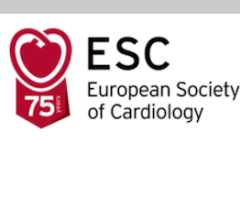
March 17, 2016 — Nearly half of all atrial fibrillation (AF) patients at the highest risk for stroke are not being prescribed blood thinners by their cardiologists, according to a new study. The study, published online March 16 in JAMA Cardiology, was conducted by researchers at University of California, San Diego School of Medicine and University of California, San Francisco.
The four-year study, which involved more than 400,000 participants, found that as stroke risk factor scores generally increased, cardiologists were more likely to prescribe blood thinners, but AF patients with the highest risk for stroke were not prescribed oral anticoagulants as frequently as guidelines suggested.
“Despite a well-known association of AF with stroke, we found a significant lack of oral anticoagulant prescribed to reduce blood clots in high-risk patients. This is a wake-up call,” said lead author Jonathan C. Hsu, M.D., cardiologist and assistant clinical professor of medicine at UC San Diego School of Medicine. “As the number of stroke cases in AF patients increase annually in the United States, our findings draw attention to a treatment gap in a demographic who may need these therapies the most.”
The incidence of stroke for AF patients is up to seven times greater than in those without the condition. Cardioembolic stroke is one of the main complications of AF, when stagnant blood in the left atrium of the heart forms a blood clot and is released into the circulation where it blocks flow to an organ, often the brain.
In AF, electrical impulses in the upper chambers of the heart are chaotic and the atrial walls quiver rather than contract normally in moving blood to the lower chambers. As a result, blood clots may form. One in four adults over age 40 is at risk for AF with a projection of nearly 6 million people in the nation having the condition by 2050.
Standardized recommendations are used to determine and help quantify an AF patient’s stroke risk and help treating physicians determine whether a prescription of oral medication, such as warfarin or newer blood thinners, may be warranted. However, in this study, researchers found just under half (48 percent) of AF patients at the highest risk for stroke were not prescribed treatment.
“Well-informed and well-intended cardiologists may struggle with a lack of data regarding optimizing risks versus benefits in patients with indications for anti-platelet drugs for their coronary artery disease and additional anticoagulants for their atrial fibrillation,” said senior author Gregory Marcus, M.D., cardiologist and endowed professor in AF research at UC San Francisco School of Medicine. “However, while studies specifically addressing those challenging cases are needed, it is clear that identifying barriers to anticoagulant prescription, whether they involve physician education or enhanced patient access, will be the key to rectifying the situation.”
The authors said there are likely multiple reasons behind the practice, including the perceived risk of prescribing blood thinners in sicker patients.
“Physicians may be avoiding additional therapy in certain patients taking antiplatelet medications because of the increased risk of bleeding associated with the oral anticoagulants,” said Hsu. “It may be thought of as too dangerous for these sicker patients, but we still know that in most of these patients the benefits of blood thinning to reduce the risk of stroke outweigh the risks of bleeding.”
Co-authors include Thomas M. Maddox, M.D., MSc, VA Eastern Colorado Health Care System, Colorado Cardiovascular Outcomes Research Consortium, and University of Colorado School of Medicine; Kevin Kennedy, MS, Saint Luke’s Mid America Heart Institute; David F. Katz, M.D., and Lucas N. Marzec, M.D., University of Colorado School of Medicine; Steven A. Lubitz, M.D., MPH, Massachusetts General Hospital; Anil K. Gehi, M.D., The University of North Carolina at Chapel Hill; and Mintu P. Turakhia, M.D., MAS, VA Palo Alto Health Care System/Stanford University School of Medicine.
This research was funded, in part, by the American College of Cardiology National Cardiovascular Data Registry.
For more information: www.cardiology.jamanetwork.com


 December 19, 2025
December 19, 2025 









